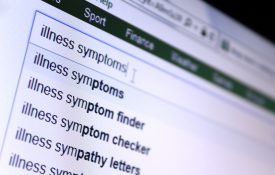-
Great Results in the Psych Lab—But Do They Hold Up in the Field?
How well do findings in the psychology lab generalize to real life? This criterion—“external validity”—is probably the most important for experimental psychology. So it was good news when, in 1999, Craig A. Anderson and his colleagues compared laboratory and field research on 38 topics in 21 meta-analyses (or analyses of numerous other studies), and found a lot of agreement between the results of the two. Greg Mitchell, a social psychologist at the University of Virginia School of Law, wanted to know if these findings hold up in a bigger sample—and whether there were differences among different kinds of psychological research.
-
Low Socioeconomic Status Means Worse Health – But Not for Everyone
Poverty is bad for your health. Poor people are much more likely to have heart disease, stroke, and cancer than wealthy people, and have a lower life expectancy, too. Children who grow up poor are more likely to have health problems as adults. But despite these depressing statistics, many children who grow up poor have good health. In a new article published in Perspectives on Psychological Science, a journal of the Association for Psychological Science, Edith Chen and Gregory E. Miller of the University of British Columbia suggest a possible reason: some children have role models who teach them to cope with stress.
-
What was B.F. Skinner really like? A study parses his traits
March 20th marks the birthday of famed behavioral psychologist B.F. Skinner, who would have turned 108 today. Besides Sigmund Freud, B.F. Skinner was the most famous and perhaps the most influential psychologist of the 20th century. But his own “radical behaviorism”—the idea that behavior is caused solely by environmental factors, never by thoughts or feelings—made him a magnet of controversy, which grew even more intense with the publication of his best-known book, Beyond Freedom & Dignity.
-
Is modern medicine ill with dehumanization? New article offers a diagnosis, unveils its causes, and prescribes a humanizing cure
“Anyone who has been admitted into a hospital or undergone a procedure, even if cared for in the most appropriate way, can feel as though they were treated like an animal or object,” says Harvard University psychologist and physician Omar Sultan Haque. Health care workers enter their professions to help people; research shows that empathic, humane care improves outcomes. Yet dehumanization is endemic. The results can be disastrous: neglect of necessary treatments or prescription of excessive, painful procedures or dangerous drugs. What are the causes and effects of dehumanization in medicine? And what can be done about it?
-

Checking Off Symptoms Online Affects Our Perceptions of Risk
You’ve been feeling under the weather. You Google your symptoms. A half-hour later, you’re convinced it’s nothing serious—or afraid you have cancer. More than 60 percent of Americans get their health information online, and a
-
Suppressing Feelings of Compassion Makes People Feel Less Moral
It’s normal to not always act on your sense of compassion—for example, by walking past a beggar on the street without giving them any money. Maybe you want to save your money or avoid engaging with a homeless person. But even if suppressing compassion avoids these costs, it may carry a personal cost of its own, according to a new study published in Psychological Science, a journal of the Association for Psychological Science. After people suppress compassionate feelings, an experiment shows, they lose a bit of their commitment to morality. Normally, people assume that ignoring their compassionate feeling doesn’t have any cost—that you can just suppress your sympathy and walk on.

